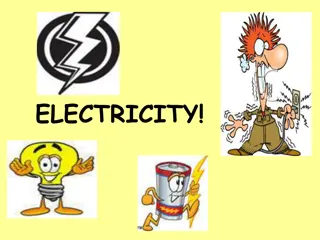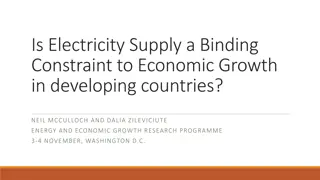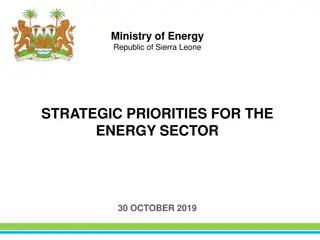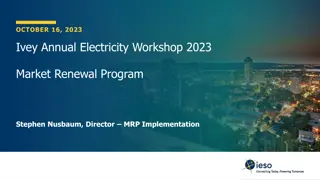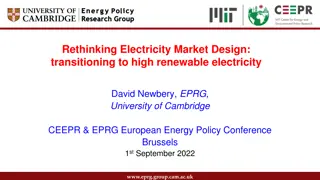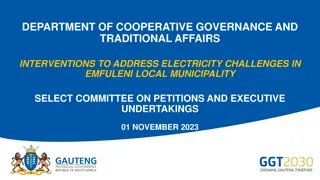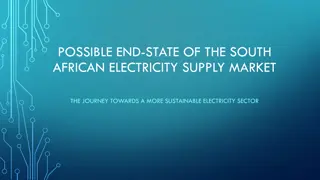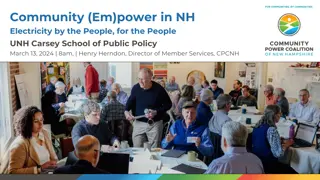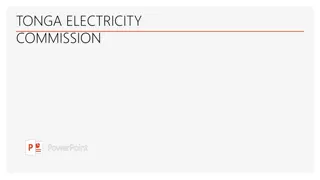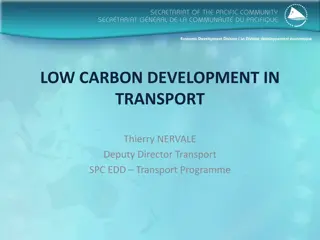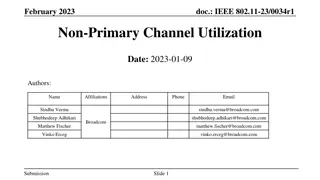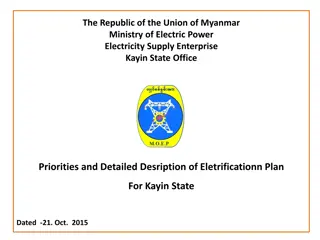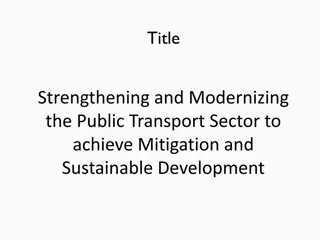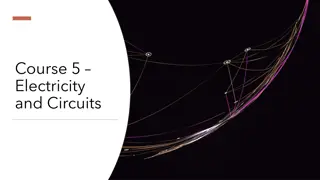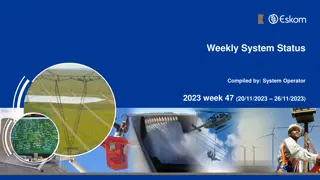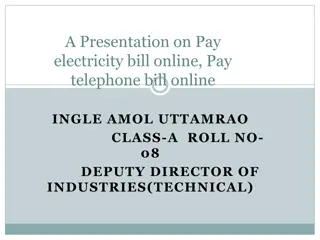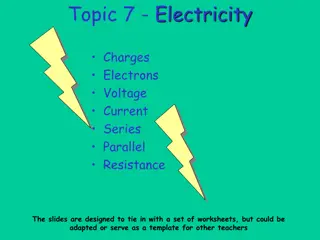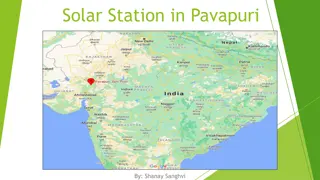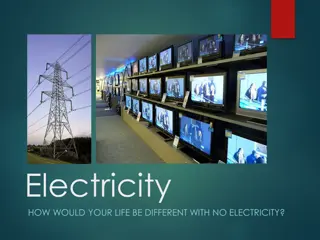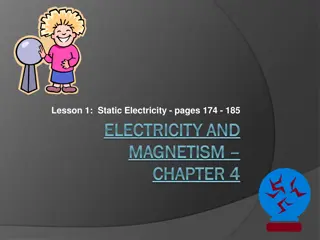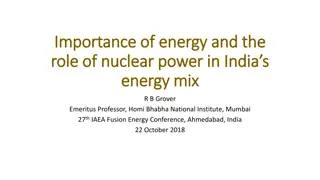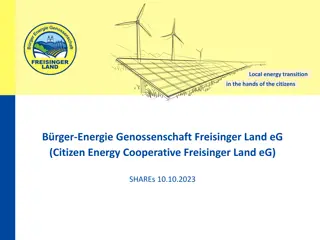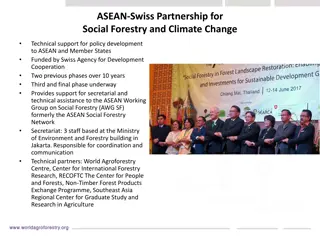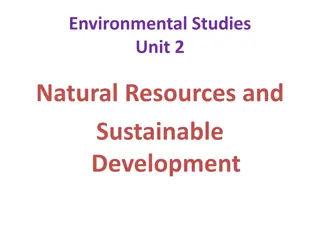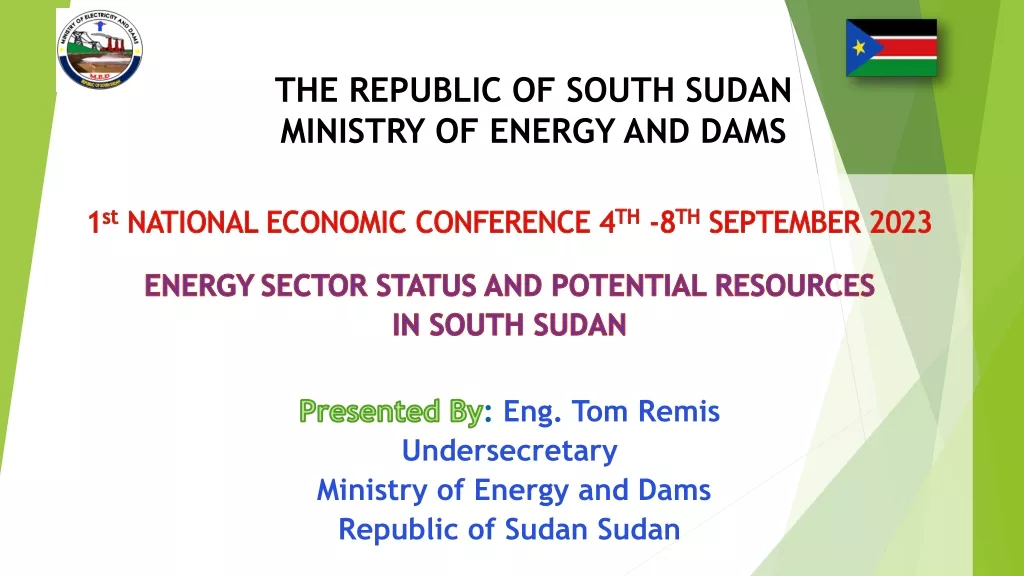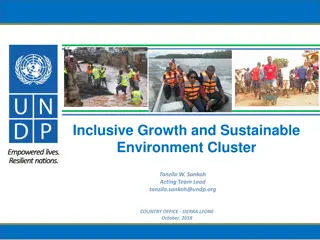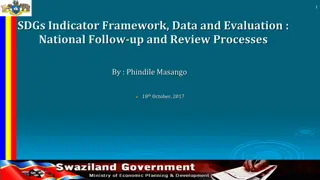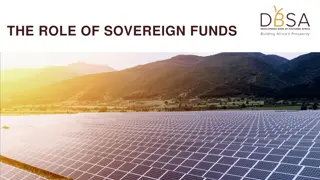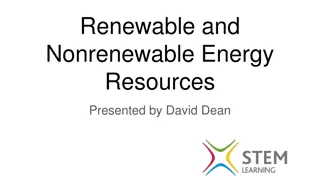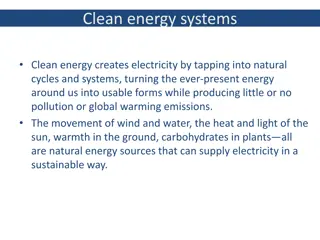Efficient Electricity Utilization Strategies for Sustainable Development
Energy conservation is crucial for economic development. Consumers play a key role in reducing power wastage. Practical tips like using energy-efficient appliances, optimizing lighting, and smart water heating can help bridge the energy supply-demand gap. It is essential for companies to focus on corporate responsibility to ensure sustainable energy practices.
- Energy conservation
- Sustainable development
- Efficiency tips
- Corporate responsibility
- Electricity usage
Download Presentation

Please find below an Image/Link to download the presentation.
The content on the website is provided AS IS for your information and personal use only. It may not be sold, licensed, or shared on other websites without obtaining consent from the author. Download presentation by click this link. If you encounter any issues during the download, it is possible that the publisher has removed the file from their server.
E N D
Presentation Transcript
Presented by Rosemary Siyachitema CCZ Executive Director Regional Electricity Regulators Association 2014 Annual Conference Victoria Falls
INTRODUCTION Energy plays an invaluable role in social and economic development as it is a critical factor of production, its cost impacting directly on other services and the competiveness of enterprises. Every productive sector in the economy relies on the provision energy. Overtime consumers have become more sophisticated and they now look beyond a company s product and service delivery when forming their perceptions of that company and more towards corporate behaviour. It is known that besides good product and service delivery consumers expect companies to be good corporate citizens and also be responsible in their business behaviour through more transparent interactions with their stakeholders and consumers. 2
As part of the integrated supply chain consumers play a critical role in the manner in which they conserve energy in order to lessen the impact of the power shortfall within the region. With regards to electricity, there is a shortage of supply with regards to the demand side and because capitalization of the sector runs into billions of dollars in terms of power plant reaction, maintenance, power transmission services and infrastructure equipment therefore the gap between the supply and the demand side need to be mitigated by empowering the consumers to respond positively to the campaign of the efficient utilization of electricity. supply of power 3
There is empirical evidence that 20% of electricity being imported or generated is being wasted and the wastage translates to about 300 megawatts in Zimbabwe. Some of the solutions put forward to conserve energy are:- Never use stoves or grills to warm the house in winter Switch off lights in all unoccupied rooms Replace incandescent lamps with the more efficient compact fluorescent lamps (CFLs) which are 4 to 5 times more efficient Use natural light as much as possible Set the geyser temperature within the 55 to 60 Degrees Celsius range and switch the geyser off when going away 4
Continued: Switch off stoves five minutes before end of cooking Switch off televisions, radios, DVDs from the mains when going to bed or going out Boil only enough water that one needs and keep the kettle element clean Use a microwave to warm and cook food as a supplement to the traditional stove Use censors to turn on security light Boil water in electric kettles as it uses less electricity than boiling with a pot on the stove. 5
Energy Sector Challenges that need to be addressed: 1.Lack of adequate supply of electricity from local generation stations due to lack of new investments in the electricity sector 2.Lack of excess capacity to allow for imports from the region 3.Aged transmission and distribution infrastructure 4.Dominance of a single state owned buyers 5.Access to electricity is still very low 6.Vandalism of infrastructure 7.Illegal connections and 8.Electricity accidents 6
Suppliers Responsibility to ensure electricity safety and transparency: Frequent monitoring of the network to check for damages Educating consumers and advocacy bodies to understand the tariff and pricing. Educating consumers to know their consumption patterns and practice energy saving methods to achieve energy efficiency Educating consumers on the dangers of: a. Tempering with cables b. Illegal connections, attempts to drain oil from transformers and unauthorized repair of fallen power 7
Consumers Responsibility to ensure electricity safety: Stop illegal connections and tampering with supply Report any unsafe electricity network connections without fail 8
The introduction of prepaid meters by the energy service providers has allowed consumers to manage their electricity consumption better but there has not been a corresponding response by suppliers in terms of power cuts which in turn becomes more expensive for consumers because they use alternative energy sources like generators and firewood. As for solar and wind energy there has not been a corresponding effort to ensure that these components are available to consumers at a reasonable price. The region needs to have policies for all new buildings to have solar energy. A sustainable energy regime will ensure cost of running businesses and companies to be manageable resulting in lower cost of basic commodities and other products. 9
Consumer Rights Energy suppliers should ensure consumers enjoy: 1. Right to access of reliable and safe energy 2. Right to receive accurate and timely bills (for those that do not have prepaid meters) 3. Right to access and to be informed about price structure, complaint procedures , planned power outages well in time and enjoy price reduction when international prices go down 4. Right to be informed about suppliers intention to terminate service and reasons thereof 5. Right to a competitive energy market 6. Right to education to issues to do with energy and energy policies. 10
Consumers Responsibilities: Consumer should receive education why: pay their energy bills on time Use energy only for purposes in the contracted terms and tariff category Allow record of consumption to be reflected in the appropriate metering device Cooperate with and support programs on the effective and efficient use of energy Allow energy supplier employees access to consumer s premises for purposes of inspection, meter reading, installation, testing, replacement or disposal of utility apparatus 11
Continued: Report all cases of vandalism and theft of the utility /energy service provider Report any faulty or damages to the utility property which can potentially cause fatal accidents Know and monitor own consumption 12
Consumer Expectations: 1. All electrical appliances to be clearly labelled the amount of electricity the gadget uses . 2. Introduce energy and power related subjects into the education curriculum to encourage and ensure full understanding of energy and power issues at an early stage catch them young . 3. Consumer education on the energy sector to all consumers urban and rural. 4. For the region to move in the area of development there is need for development in the electricity generation. 5. Where there are no prepaid meters there is need for a proper billing which shows the correct liability of the consumer for proper budgeting 13
Continued: 6. Sufficient supply of energy to all consumers 7. To be informed of power cuts and educated on the safety, energy efficiency measures, rights and their responsibilities 8. Due consideration for poor and marginalized consumers and also consideration of prevailing economic environments. 14
CONCLUSION: Regulatory authorities need to partner with consumer advocacy organisations within the region in order to enhance knowledge in addressing key areas affecting both consumers and suppliers in order to achieve clear improvements with the particular emphasis with provisions of electricity for all. Consumer Advocacy bodies are well placed and it is their core competency to educate and ensure the right information reaches the consumers. It would be to the regulators advantage and interest if advocacy bodies are funded for consumer education and trained in various areas that include pricing, complaints handling and are informed on future developments in energy so that this information reaches consumers. 15
Thank you, Tatenda, Siyabonga For further information visit our website www.ccz.co.zw Our Offices 5th Floor Pax House, 89 Kwame Nkrumah Avenue, Harare Tel: 263 4 707065, 706968 E-mail: ccz1@mweb.co.zw Fax: 263 4 700500 16








